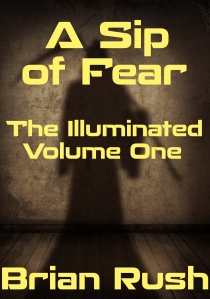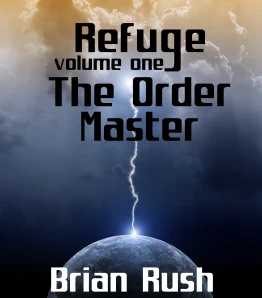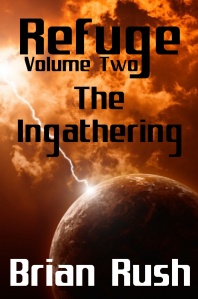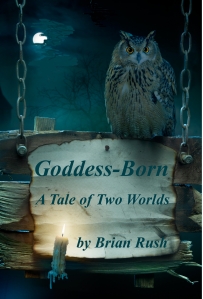 I’m adding this page late to my blog. I’m adding it late because it isn’t natural for me to talk about myself in public. My work, my thoughts, my books, yes. Myself, no. It didn’t even occur to me until recently that I should have a page talking about myself.
I’m adding this page late to my blog. I’m adding it late because it isn’t natural for me to talk about myself in public. My work, my thoughts, my books, yes. Myself, no. It didn’t even occur to me until recently that I should have a page talking about myself.
I’m adding it at all because The Best Advice Of All The Wisest People says that one should, that it personalizes and humanizes a writer’s presence. Maybe it does, and maybe that’s a good thing. In some ways, although I’ve become facile enough at using social media and living in the internet age, it remains true that the first 40 years of my life (more or less) were lived before that age, and some aspects of it still do not come naturally for me.
But for those who are interested in knowing where all of the stuff on this blog is coming from (as The Best Advice Of All The Wisest People insists many people are), I shall endeavor to satisfy curiosity as best I can.
Hmm, where to go from here. Let me try to be methodical and compartmentalize by subject matter.
Origins
I was born in Texas. Houston, to be precise, and I lived in that city for the first few years of my life, then my family and I relocated to Dallas, and it was back and forth between Houston and Dallas for years after that as my father was transferred by the company he worked for. You couldn’t tell by talking to me that I’m a Texan. All (or nearly all) trace of an accent is gone. I moved to Seattle, Washington in 1978 and have lived on the West Coast (Seattle for 18 years and now northern California) ever since. I like to say that Texas is a great place to be from. (Because if you’re from Texas, that implies you’re somewhere else currently.) The Lone Star State and I never did get along all that well. I’m much happier here in the land of the lotus eaters. Those of you who love Texas, please don’t take offense, as no location can be for everyone. I think it’s a reasonable assumption that anyone who loves Texas will loathe California and vice-versa; aside from the Hispanic influence, the two states are about as different as they can get and still be under the U.S. Constitution. Yet, although I left Texas when young and have never looked back, one is always shaped by the place of one’s birth and childhood. It was in Texas and in my youth that I first encountered spirituality, magic, fantasy, the writer’s art, and left-wing politics, which are five of the defining passions of my life, and all but the last of them have a prominent place here. (I try to tone down the politics on this blog, not because it’s not important to me but because it starts debates that are a distraction from the other things I want to pursue here.)
Spirituality and the Magical Arts
I was raised in an agnostic/atheist/freethinking home. I have always been grateful for that upbringing. I came to different conclusions on these subjects than my parents did, but the habits of critical thinking and rejection of dogma have remained with me and I believe they have protected me from joining an established religion and being limited by the boundaries of its doctrine. Also, the fact that I have never had an organized religion imposed on me by parental authority means I have never developed the ferocious hostility towards the prevailing orthodoxies (Christian in this country) that one sometimes sees among both atheists and the non-traditionally religious.
My early life was non-religious, calmly and non-beligerently atheist, and possessed of a love affair with science (that last is still with me). Much of this changed when I had my first spiritual experience at the age of twelve. (That was a tumultuous year for me, as I discovered politics, became spiritually/magically aware, and developed a new perspective on girls all at the same time. This is what’s known as a “triple whammy.”) The spiritual experience I had then is hard to describe, but consisted of a feeling that, contrary to my earlier beliefs, there was someone there in the night, someone who could speak (as it were) directly into my heart and who called me to explore a different side of reality than I had known up to then. I called this someone God, because that was the default label and I hadn’t thought about the spiritual side of things much up to then, and I began participating over the next few years in an informal Christian group that met for Bible study, discussion, and prayer. This was in the early 1970s and the “Jesus movement” — hippies for God, basically — was a major player in that stage of the Awakening Era; we were a part of that. I also explored the more conventional side of Christianity and was eventually confirmed in a Lutheran church, but not without misgivings. I found that while I could not deny the presence in my heart, and while many of the teachings of Jesus found in the Gospels resonated well with me, there was a lot in Christian doctrine that I had problems with, from the barbaric conception of a God demanding blood sacrifice to the archaic sexual morality to the whole idea of inerrant Scripture and, perhaps more than anything else, the concept of Hell. (It perhaps didn’t help matters — or did help them, if one adopts a different perspective — that I was also pursuing my studies in the magical art, which most Christian churches condemned. More on that in a moment.)
Things came to a head one afternoon when I was sixteen or seventeen years old, and Jesus came to me in a vision. I felt him encouraging me to leave the Church and pursue my own spiritual path, as I’d been considering and dreading, and the words came to me: “The Church does not own me. Wherever you go, I will be there.” That was enough, and so with a deep breath and a sense of relief, I abandoned Christianity and struck out in pursuit of truth wherever I could find it. I explored Hindu and Buddhist thinking, Hermetic thought and the Kaballah, New Age thinking and Neopaganism. I became involved in the Pagan community in Seattle mostly due to my marriage, and called myself a Pagan for many years. The vision of Jesus proved true, though, as I found him compatible with any of these contexts. (It’s interesting, in fact, to observe how many religious traditions today revere him as a holy figure of some kind. To Muslims he was a Messenger of God on a par with the Prophet Muhammad; Hindus see him as an Avatar of Vishnu; Buddhists recognize him as a Bodhisattva. His message is very nearly pure and context free, and in no way dependent on the Judaism he practiced himself, which may go a long way towards explaining what they did to the poor guy. Pure spirituality makes religious authorities very uncomfortable, I’ve found. He found that, too, only more so.)
Today, I’ve come to call myself a spiritual person without a label. I find I cannot call myself a Pagan anymore than I could a Christian or a Hindu or a Buddhist or anything else I’ve studied. There’s truth in all of it, but no exclusive claim to the truth in any of it, and I cannot define myself as “this” when it implies “not that.” My ideas about that holy presence in my heart have evolved as well, and I seldom call it God anymore, or the Goddess either. I think of it as the universe encompassing all of time and space, and also as the universal soul, the only consciousness that exists.
During all of this I also developed magical awareness and practiced the magical arts. I studied the methods used by many different schools and practitioners, including the Golden Dawn material, Aleister Crowley’s adaptations of that material, and the simpler and more organic methods commonly used by Wiccan covens. I had some remarkable visionary experiences along the way and as a result. Today, I have slimmed down and pared down my methods to the point where most everything is visualized rather than physically enacted. I find that the best manifestation of magic isn’t showy. It flows through one’s life and organizes things to meet one’s needs and learn one’s lessons, and it dovetails well with the spiritual quest by arranging reality to facilitate that quest. I find that my use of simple magical powers such as telepathy, foreknowledge, healing, and fate-shaping has become second-nature and something I no longer need much in the way of complicated ritual or symbolic reaffirmation to achieve. I still have magical goals, of course, but as always, they are to be pursued in secret. To Know, to Will, to Dare, and to Keep Silent are the Powers of the Sphinx and the essence of magical practice. And so I will say no more.
Writing
I have been writing fiction and nonfiction since I was fifteen years old. I fell in love with fantasy, like many of my generation, after reading Tolkien’s The Hobbit and The Lord of the Rings. I’ve read an enormous amount of fantasy, science fiction, historical fiction, and alternate history in the years since then and written a lot of it, too.
For most of my life, I was unable to pursue my writing ambition seriously. I was too busy supporting a family during the key years, and then paying child support, which kept me hustling financially. I’ve only begun to seriously write fiction since 2003, when I began writing a novel about a human-machine conflict with a negotiated twist, avoiding what had already been done in The Terminator and The Matrix. (That novel has never been published and I don’t plan to publish it.) I hit a brick wall in late 2003 when the end of a relationship plunged me into a depression that lasted several years. When I emerged from the depths in 2007, I finished that first novel and quickly began working on The Stairway to Nowhere, which became my first published novel in 2010. Since then, I’ve written and published five books (The Stairway to Nowhere, The Child of Paradox, The Golden Game, The Green Stone Tower, and Goddess-Born) and currently have two more in the works, The People of the Sea and Refuge. It’s safe to say the dam is broken.
I feel blessed to have delayed my serious pursuit of a career as a novelist for one reason: I can take advantage of the self-publishing revolution rather than riding the query-go-round. These are truly exciting times to be an author! Success isn’t any easier than it used to be, but it does involve less in the way of groveling and of frustration arising from someone else’s malfeasance. For the frustrations that remain, one has only oneself to blame, and that is a good place to be.
Relationships and Personal Life
I’ve not been successful in romance. Until fairly recently, this has been a fixation of mine and an ongoing disaster. It began in high school, when, the very archetype of the brainy, nerdy loner, I went through those years without a single date. I had serious doubts about my attractiveness and everything connected to it that were not put to rest until I went to college and encountered lots of brainy, nerdy women to whom I wasn’t such a weird guy after all. In college and thereafter I became something of a hot number, but before that happened I had developed two convictions. One was that being in a good romantic relationship with true love that would last was necessary for happiness. The other was that I was cursed never to find it.
I’ve now concluded that I was probably right about that second conviction, which means it’s lucky I was wrong about the first one. At this point in my life I am single and expect to stay that way, and I’m happy about that.
Between then and now, I went through three long-term relationships, one of them a marriage with two children, and several abortive ones that were complete disasters. Even the ones that lasted were flawed by fear of commitment, by personal incompatibility and violence, or by a complete mutual lack of sexual interest that ruined what could have been a great friendship.
So it goes. I’m in my fifties, my sex drive isn’t as pesky as it used to be, although it hasn’t completely retired, and I have lost the anxiety I used to have about not being able to have a good romantic relationship. I don’t need to be in a relationship to be happy and fulfilled, and that is perhaps the grandest or at least the most comforting and relief-generating discovery I have ever made. If one comes along, fine and good, but I’m not looking and I don’t expect it to happen, and that’s fine with me.
Corsica
I have an ongoing passion for a place I’ve never been. It’s an island in the Mediterranean, politically a part of France but culturally a land all its own. It’s the birthplace of Napoleon and a tourist destination because of its natural beauty (in fact, it’s commonly called L’île de beauté — the island of beauty). But none of that is the reason why I intend to pay the place a long visit as soon as possible. Actually, I don’t know why. All I know is that Corsica has called to me for many years, and that I am supposed to go there, I know not why. I’m fairly certain the compulsion or destiny is magical. Corsica is a powerfully magical place.
What I plan to do is to rent an apartment in Ajaccio, which is the largest city on the island and the capital, and spend at least three months on location. By that time I should know what this is all about, and in knowing that, know whether I should stay on Corsica or return to the U.S. I had originally hoped to be there by this time, but there have been unexpected delays and barriers. It will happen when it’s meant to happen.
There’s more I could say of me, but I blush to have spent so much time on the subject already. Bless all of you who read the above.







Thanks very much for taking the plunge and telling your fans a little about yourself. It was a great read.
December 24, 2014
To the working-class hero Brian Rush:
Just finished reading your little book (Reclaiming Socialism: Economic Democracy) in one sitting. It was a birthday gift to myself, albeit three days late. I was determined to make the time to give it the attention it clearly deserves. Based on the other essays I have read by you, I had a hunch this little book about socialism was going to be worth any time I could set aside. Boy, was I ever right!
So, this morning early (before the wild and crazy Christmas scramble reaches it’s peak) I sat here in my cozy chair with Spike snoozing on my lap….and read.
You, sir, are a great thinker. I have suspected that for a while but now I am sure.
Further, your little book is JUST EXACTLY what I have been looking for. There are so many people I love who are puzzled by my constant (often emotional) ranting about the working class and you have given me a way to help them understand who I am. I have never been able to express the way I believe in the clear and concise way that you have done in this little book. I am astounded that you were able to do it in only 120 pages!!!
This little book of yours has been sitting in my NOOK (eReader from Barnes and Noble) for several weeks and now it is my intention to purchase at least ten copies in hard cover or pocket format (whatever is available) to give to family members and friends when I am in America next month to celebrate the milestone 65th birthday of my brother.
My brother is also a great thinker but has made the choice to work for a huge corporation and to rise to rather dizzying heights through hard work and determination. I never have begrudged him his success. Indeed, if I am honest I have to admit I have profited from the lifestyle I am able to enjoy when I visit his family. Now with his retirement imminent, my ideas can harmonize with the love and respect I feel for him.
Your little book makes it possible for me to heal the hurt I may have caused him through my many vitriolic remarks about corporate greed.
Thank you for this wonderful gift to the working class. You will probably see many posts by me on Google+ and Facebook advertising this brilliant treatise on socialism.
Your devoted fan and sister in struggle,
Brenda